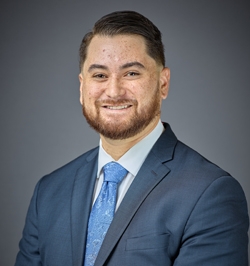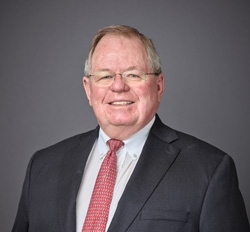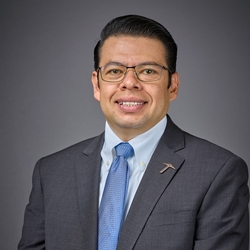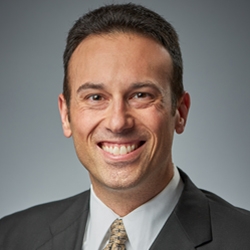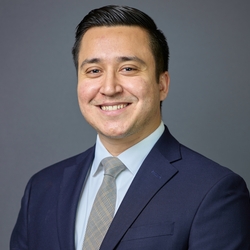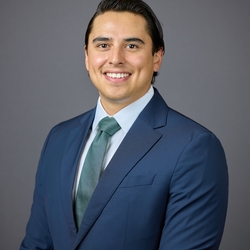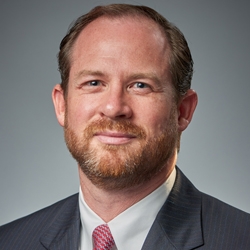New Mexico Enacts Legislation Prohibiting Hairstyle Discrimination and Mandating Paid Sick Leave
Contact Clara (C.B.) Burns, Charles C. High, Jr., Michael D. McQueen and Gilbert L. Sanchez -
April 30, 2021
This month New Mexico Governor Michelle Lujan Grisham signed into law the Crown Act which prohibits discrimination based on traditional hairstyles and head coverings. Traditional hairstyles and religious coverings under the new law cannot be prohibited in the workplace, school dress codes, or used as an excuse to decline employment to an applicant. The Crown Act is now in effect and applies to both public and private employers.
Additionally, Governor Lujan Grisham signed House Bill 20 enacting the Healthy Workplaces Act (HWA). The HWA mandates that private employers provide up to 64 hours of paid sick leave each year. HWA takes effect on July 1, 2022. By enacting HWA, New Mexico joins 15 other states and the District of Columbia in mandating paid sick leave to employees.
HWA requires individuals, partnerships, associations, corporations, business trusts, legal representatives or any organized groups of persons employing at least one employee at any time to provide paid sick leave to all employees, including full-time, part-time, seasonal, and temporary employees. Notably, small employers are not exempt from HWA. However, HWA does not apply to public employers.
Under HWA, employees will accrue one hour of paid sick leave for every 30 hours worked, up to a total of 64 hours a year. An employer may choose to frontload its employees with the 64 hours at the beginning of the year or be more generous in providing employees with paid sick leave. An employer can choose how it would like to define a “year” in which paid sick leave must be used such as relying on the calendar year, fiscal year, or a rolling 12-month period measured forward from the date an employee first requests sick leave.
HWA allows employees to use paid sick for the following reasons:
1. The employee’s:
4. For absence necessary due to domestic abuse, sexual assault, or stalking suffered by the employee or a family member of the employee; provided that the leave is for the employee to:
Employers must provide paid sick leave following an employee’s oral or written request. Employees should include the expected duration of sick leave being requested. When the leave is foreseeable, employees should make a good faith effort to provide notice and make a reasonable effort to leave in a manner that does not unduly disrupt business operations. Employers may require employees to provide reasonable documentation that sick leave is being used for a qualifying HWA reason if the employee uses at least two consecutive workdays of sick leave.
Documentation signed by a health care professional indicating the amount of earned sick leave taken will be considered reasonable documentation, as will a police report, a court-issued document, or a signed statement from a victim services organization, clergy member, attorney, advocate, the employee, a family member of the employee, or other person. An employer may not require that the documentation explain the nature of any medical condition or the details of the domestic abuse, sexual assault, or stalking. Employers must retain records for each employee for a four-year period, documenting hours worked and paid sick leave used.
Employers with paid time off (PTO) policies that provide the minimum amount of leave required by HWA may use their PTO policy to comply with their HWA requirements, so long as employees can take PTO for the same reasons set forth in the HWA and under the same terms and conditions. For example, employees requesting PTO for a qualifying HWA reason cannot be required to receive advance approval from their manager to take time off and must be able to use PTO in hourly increments or less. Sick leave required by HWA will be in addition to any PTO provided by an employer pursuant to a collective bargaining agreement, unless that PTO may be used for the same purposes and under the same terms and conditions as HWA.
Moreover, employers must give written or electronic notice to an employee at the commencement of employment of the following:
The HWA prohibits retaliation against employees who take this leave, providing an avenue of relief if employees feel their employer has taken any adverse action against them. Employees claiming that their employer violated HWA may file a civil action in court within three years from the date the alleged violation occurred.
An employer that violated HWA may be liable to the employee for the employer’s failure to compensate an employee for sick leave, unlawfully denying sick leave, discharging an employee relating to the employee’s use of paid sick leave, and failure to provide notice or comply with HWA’s recordkeeping requirements. Employers also will liable if they fail to provide sick leave to employees who are misclassified as independent contractors. Penalties against employers vary and include fines, back pay, lost wages, and benefits.
Given the effect on the hiring process and workplace benefits presented by these two new laws, employers should evaluate whether policies need to be revised before the July 1, 2022 effective date. We are here to help you along the process, especially given that HWA will take effect next year. If you have any questions about the Crown Act or HWA, please feel free to contact Kemp Smith’s Labor and Employment Department at 915-533-4424.
Additionally, Governor Lujan Grisham signed House Bill 20 enacting the Healthy Workplaces Act (HWA). The HWA mandates that private employers provide up to 64 hours of paid sick leave each year. HWA takes effect on July 1, 2022. By enacting HWA, New Mexico joins 15 other states and the District of Columbia in mandating paid sick leave to employees.
HWA requires individuals, partnerships, associations, corporations, business trusts, legal representatives or any organized groups of persons employing at least one employee at any time to provide paid sick leave to all employees, including full-time, part-time, seasonal, and temporary employees. Notably, small employers are not exempt from HWA. However, HWA does not apply to public employers.
Under HWA, employees will accrue one hour of paid sick leave for every 30 hours worked, up to a total of 64 hours a year. An employer may choose to frontload its employees with the 64 hours at the beginning of the year or be more generous in providing employees with paid sick leave. An employer can choose how it would like to define a “year” in which paid sick leave must be used such as relying on the calendar year, fiscal year, or a rolling 12-month period measured forward from the date an employee first requests sick leave.
HWA allows employees to use paid sick for the following reasons:
1. The employee’s:
a. Mental or physical illness, injury, or health condition;
b. Medical diagnosis, care, or treatment of a mental or physical illness, injury, or health condition; or
c. Preventive medical care;
2. The employee needs to care for a family member relating to the family member’s:
b. Medical diagnosis, care, or treatment of a mental or physical illness, injury, or health condition; or
c. Preventive medical care;
a. Mental or physical illness, injury, or health condition;
b. Medical diagnosis, care, or treatment of a mental or physical illness, injury, or health condition; or
c. Preventive medical care;
3. For meetings at the employee’s child’s school or place of care related to the child’s health or disability;b. Medical diagnosis, care, or treatment of a mental or physical illness, injury, or health condition; or
c. Preventive medical care;
4. For absence necessary due to domestic abuse, sexual assault, or stalking suffered by the employee or a family member of the employee; provided that the leave is for the employee to:
a. Obtain medical or psychological treatment or other counseling;
b. Relocate;
c. Prepare for or participate in legal proceedings; or
d. Obtain services or assist a family member of the employee with any of the activities set forth in the statute.
Employees are required to take paid sick leave in one-hour increments, unless the employer permits employees to take leave in smaller increments. Moreover, as a condition of taking paid sick leave, employers may not require that the employee search for and find a replacement worker to cover the employee’s paid sick leave.b. Relocate;
c. Prepare for or participate in legal proceedings; or
d. Obtain services or assist a family member of the employee with any of the activities set forth in the statute.
Employers must provide paid sick leave following an employee’s oral or written request. Employees should include the expected duration of sick leave being requested. When the leave is foreseeable, employees should make a good faith effort to provide notice and make a reasonable effort to leave in a manner that does not unduly disrupt business operations. Employers may require employees to provide reasonable documentation that sick leave is being used for a qualifying HWA reason if the employee uses at least two consecutive workdays of sick leave.
Documentation signed by a health care professional indicating the amount of earned sick leave taken will be considered reasonable documentation, as will a police report, a court-issued document, or a signed statement from a victim services organization, clergy member, attorney, advocate, the employee, a family member of the employee, or other person. An employer may not require that the documentation explain the nature of any medical condition or the details of the domestic abuse, sexual assault, or stalking. Employers must retain records for each employee for a four-year period, documenting hours worked and paid sick leave used.
Employers with paid time off (PTO) policies that provide the minimum amount of leave required by HWA may use their PTO policy to comply with their HWA requirements, so long as employees can take PTO for the same reasons set forth in the HWA and under the same terms and conditions. For example, employees requesting PTO for a qualifying HWA reason cannot be required to receive advance approval from their manager to take time off and must be able to use PTO in hourly increments or less. Sick leave required by HWA will be in addition to any PTO provided by an employer pursuant to a collective bargaining agreement, unless that PTO may be used for the same purposes and under the same terms and conditions as HWA.
Moreover, employers must give written or electronic notice to an employee at the commencement of employment of the following:
1. The employee’s right to earned sick leave;
2. The manner in which sick leave is accrued and calculated;
3. The terms of use of earned sick leave as guaranteed by HWA;
4. That retaliation against employees for use of sick leave is prohibited;
5. The employee’s right to file a complaint with the Labor Relations Division of The Workforce Solutions Department if earned sick leave as required pursuant to HWA is denied by the employer or if the employee is retaliated against; and
6. All means of enforcing violations of HWA.
The Labor Relations Division of the Workforce Solutions Department will provide a poster that must be posted in the workplace. 2. The manner in which sick leave is accrued and calculated;
3. The terms of use of earned sick leave as guaranteed by HWA;
4. That retaliation against employees for use of sick leave is prohibited;
5. The employee’s right to file a complaint with the Labor Relations Division of The Workforce Solutions Department if earned sick leave as required pursuant to HWA is denied by the employer or if the employee is retaliated against; and
6. All means of enforcing violations of HWA.
The HWA prohibits retaliation against employees who take this leave, providing an avenue of relief if employees feel their employer has taken any adverse action against them. Employees claiming that their employer violated HWA may file a civil action in court within three years from the date the alleged violation occurred.
An employer that violated HWA may be liable to the employee for the employer’s failure to compensate an employee for sick leave, unlawfully denying sick leave, discharging an employee relating to the employee’s use of paid sick leave, and failure to provide notice or comply with HWA’s recordkeeping requirements. Employers also will liable if they fail to provide sick leave to employees who are misclassified as independent contractors. Penalties against employers vary and include fines, back pay, lost wages, and benefits.
Given the effect on the hiring process and workplace benefits presented by these two new laws, employers should evaluate whether policies need to be revised before the July 1, 2022 effective date. We are here to help you along the process, especially given that HWA will take effect next year. If you have any questions about the Crown Act or HWA, please feel free to contact Kemp Smith’s Labor and Employment Department at 915-533-4424.








